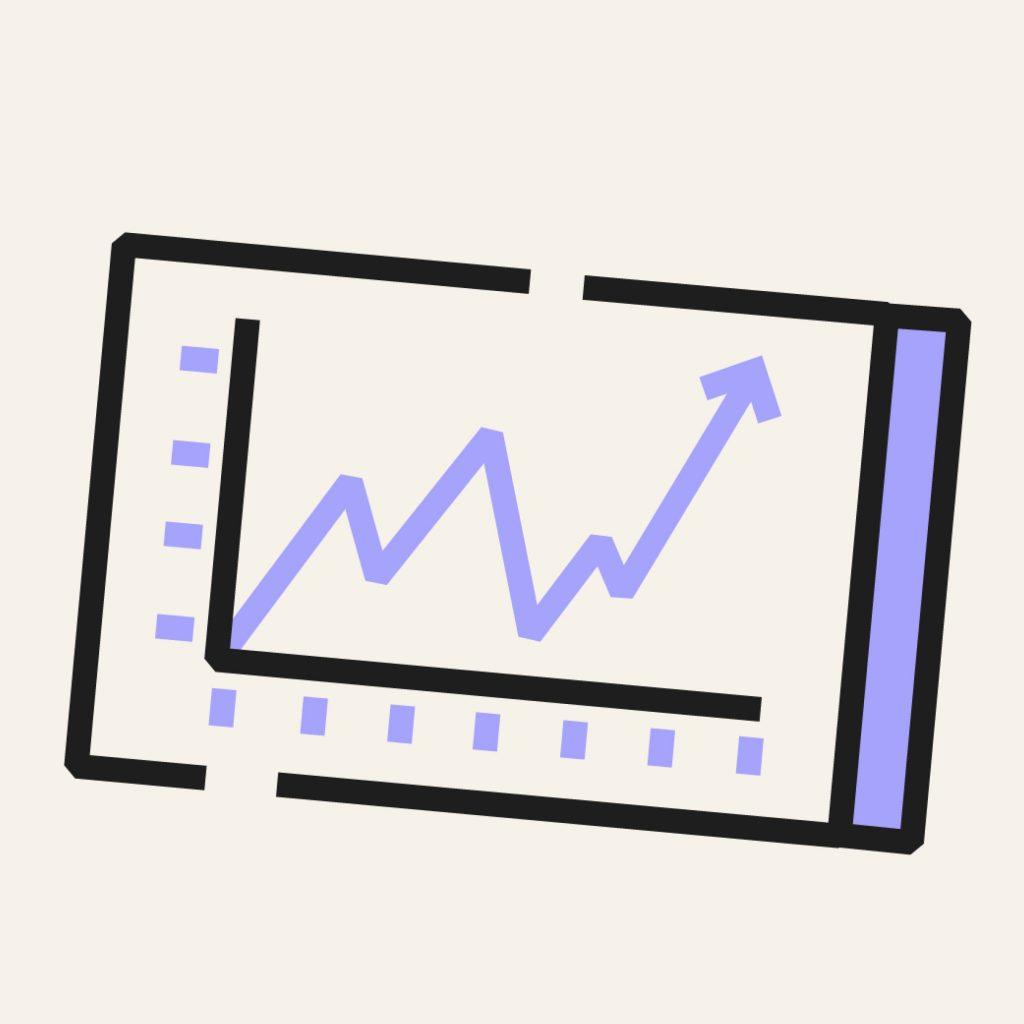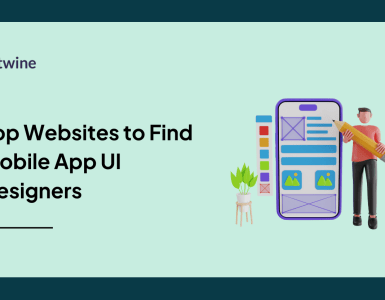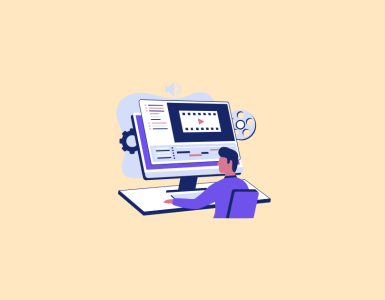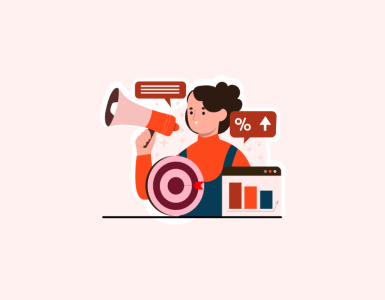
Ecommerce is one of the most lucrative business ventures someone can take. In the coming years, it’s only growing in popularity. Over the next four, retail ecommerce sales are forecasted to grow by 50%. This means that despite the competitive market, there’s plenty of room for more ecommerce business to join the party.
If you started an ecommerce business a while ago, you’re probably already aware of this incredible opportunity.
Good.
But what’s next? How can you take your business to the next level so it can continue to thrive?
If you don’t scale your business, it could stagnate and risk financial ruin. Your growth would be hampered. Your customers leaving before they’ve had a chance to fall in love with your brand…
That’s why you need to have your eye on the ball — and the best ecommerce growth strategies up your sleeve.
By automating admin tasks and simplifying financial management — you are provided with the insights you need for your brand to grow.
First things first, let’s start with the basics…
What Does “Scaling Up” Mean in Ecommerce?
If you’re starting a new ecommerce business, scaling comes after your company has taken flight, and requires investment. But you can’t expect ecommerce growth to happen overnight.
Generally speaking, when you scale up your ecommerce business, your revenue keeps growing. One way to scale up is to improve your current services such as your general user experience.
Improving general UX experience can include things like optimizing your business processes via smart tools, or handling customer relationship management. When done correctly, optimizing these processes in your business can lead to revenue growth.
But how do you trigger that growth in the first place?
Grow Your Marketing Strategy

The more people who know about your business, the more you’ll have to prepare and start scaling. You’ll need to be able to match your customers’ growth.
To achieve growth in your customer base, you’ll first need to focus on generating brand awareness for your e-commerce business. This requires having a top-notch marketing strategy in your arsenal. (Need help with your email marketing? Check out our guide to the best email marketing strategy here!)
Generating more brand awareness goes hand-in-hand with your marketing strategy. This means thinking even more about your brand as a whole, rather than simply how to sell your products.
When you start your ecommerce business, you want people to know what your site is about. As you grow, you want them to recognize you as one of the leading competitors within your industry.
Strengthen brand awareness by collaborating with other brands in your field. Distinctive brand visuals – like a well-designed logo and website – plus, an active social media account, can help tie everything together. With your message and branding in sync, you will have gone beyond the pure presentation of your product. Focusing on solidifying and growing your position in the market, will allow you to unlock the next step of your growth.
Another powerful way to draw more people to your brand is to create high-value content that they can engage with. This may be starting a blog, whereby you’re sharing valuable knowledge on subjects that you want your brand to be associated with.
Engagement is the key. Content is king.
The more engaging you make your content, and the wider your social reach, the more likely it is that users will have an emotional connection to it. Content isn’t just about promoting your product and brand, after all. It’s about bringing a relevant, personal and meaningful experience to your audience, each and every time they engage with you.
Alongside new content, take a look back and analyze your previous ad campaigns.
Let the data speak. Use the learnings from A/B testing to build and invest in a more sophisticated marketing strategy. Ensure it’s continuously analyzed and optimized. Advertise on platforms like Facebook and Instagram, and have a lead and value-driven approach. You should also utilize the full potential of all relevant advertising and retargeting formats.
Combine this with pay-per-click advertising (PPC) — which is a must when it comes to increasing conversions. This will make sure you show up where and when your customer searches for you or your services/products. Plus, you can track analytics to see what gives the best results, boosting the performance of your upcoming campaigns based on these insights.
Also look into affiliate marketing, which works on a commission basis. This means you only pay the affiliate once they have driven a sale to you. Test, learn, improve and perform better over time. Go from generating leads and conversions to improving their quality and subsequently increasing the revenue you get from them.
Retarget Customers
Aside from attracting new customers, you shouldn’t forget the customers who were close to buying. Retargeting customers who visited you in the past, but left before making a purchase, is a great strategy. According to statistics, the average cart abandonment rate is just under 70%. That’s huge.
To avoid this, use targeted social media adverts and enticing, well-written email campaigns to convince users to complete their purchases. Although this seems basic, a lot of ecommerce platforms such as Shopify let you automate this abandoned cart recovery process.
Don’t Leave SEO Behind
Another string to your bow: a well-optimized website that ranks well and gets your company noticed by more people. In addition to the paid PPC campaign, your search engine advertising (SEA) strategy will bring in more customers.
How? Leverage SEO in all content on your website by improving it with relevant keywords. Build a backlink profile for your website, remove any toxic links, and create a user experience that is even more seamless and intuitive.
Automate and Outsource Your Processes
In addition to investing in becoming more visible and driving more of the right conversions, think about internal optimization. Streamline your processes and use tools that promote efficiency.
But what kind of tools?
Ideally, you’re looking for tools that will unify your financial data. This can be done by connecting your bank accounts, payment gateways, and ad networks in one place. Being able to track and monitor your cash flow and ROI, as well as invoice with the automatic generation, will save you plenty of time.
You should automate any task that takes time away from focusing on your e-commerce business. This can be things such as scaling, accounting, answering customer support queries, and repricing.
By automating or outsourcing some of the day-to-day admin you face, you’ll also free up many hours otherwise spent on mundane tasks. Even if you have a large team of staff, sometimes you may not be able to get everything done.
As your business scales up, you’ll need to spend less time managing your accounting. Instead, you can spend time outsourcing the processing, packaging, and shipment of items, to a third party.
As you automate your internal processes, take the next step for your marketing. Embrace the technologies and platforms that increase your impact. Make it easier for your potential customers to connect with you, your products, or your services.
More businesses are turning to artificial intelligence (AI) and augmented reality (AR) to improve shopping experiences on their ecommerce sites.
An example of AI is chatbots. Chatbots enable customers to get answers to commonly asked questions, while AR enables a customer to better visualize what they are going to purchase before buying.
Voice search is also becoming an increasingly popular addition to ecommerce business. With which customers are seeking online goods and services, these functionalities go beyond in terms of growth and service.
Get the Help of a High-Limit Credit Card
Although automating parts of your business is a large expense, you should expect to see a return on this investment with careful financial planning.
When you first launch an ecommerce business, it may be difficult to secure financial backing. This particularly is the case for a business credit card.
Your credit rating and creditworthiness may not be quite there yet if your company is still in its early stages. As your business grows, however, a high limit credit card may be on offer to you. Make the regular payments required, and this can help ease the financial burden.
For a buyer, this could mean funding the next round of advertising campaigns – i.e. a bigger audience, more customers, and business growth. A business credit card with a high limit can also help you prepare for larger amounts of orders, and increased production.
Maintaining a good cash flow will give your business the best chance of success. Having a Juni credit card*, with cashback, offers more opportunities to make the most of each spend. Combined with zero-interest credit and payment terms up to 60 days upon request, they provide more ease and flexibility.
All this, with your careful financial planning, optimized processes, improved campaigns – and you’ve got yourself a solid combination to achieve efficient business growth!
Wrapping up
Starting an ecommerce business is an exciting career step. Growing your firm as you serve more customers is both hard work and rewarding. Eventually, you’ll get to a point where you’ll need to scale up to maintain growth.
While every business is different in how it approaches this, the most important elements to consider are your marketing strategy, brand positioning, processes, finances, and customer experience.
When you’re ready to take the leap and upscale, Juni, the financial companion, can help you track your finances better. Their all-in-one platform provides a unified view of all your business funds, and simplifies admin with 2,400+ integrations including Google Ads, Paypal, and Stripe. Reach a bigger audience with credit lines upon eligibility and multiple currencies such as USD, GBP, and EUR.
Ready to hire? Our marketplace of over 410,000 diverse freelancers has the skills and expertise needed to skyrocket your business. From marketers to designers, copywriters to SEO experts – browse the talented bunch here!




